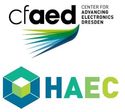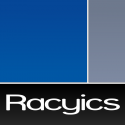11.8 A Powerful Framework for Functional Safety
Date: Thursday 22 March 2018
Time: 14:00 - 15:30
Location / Room: Exhibition Theatre
Organiser:
Astrid Ernst, Mentor, DE
In the program of the technical conference, on Thursday is the Special Day for "Autonomous Driving". In the Exhibition Theatre this will be complemented by a workshop on how to design chips and electronic systems fulfilling the functional safety requirements of devices used in the car. This a challenge which is absolutely key for the automotive industry - no autonomous driving without functional safety, no matter how cool the driving algorithms might be.
| Time | Label | Presentation Title Authors |
|---|---|---|
| 14:00 | 11.8.1 | INTRODUCTION Speaker: Dirk Hansen, Mentor, DE Abstract As semiconductor value in a modern car expands, reliability and safety of electronics must improve dramatically. If simple electronics in Bluetooth and power seats cause the most problems in cars today, as indicated by various reliability and dependability surveys, how are we going to make the shift to much more complex electronics systems that are needed for self-driving cars? It will become imperative to improve the quality of semiconductors going forward and we must get much better in verifying and validating these complex automotive systems knowing that lives will be at risk with autonomous driving. This will increase the test cycles, visibility and coverage to improve the safety and reliability. In this session, we will present technologies and methodologies allowing us to handle an explosion of test scenarios to verify electronics and algorithms of driverless cars. We will explain a mature Development Process and show how Requirement driven development provides proof that design was built and tested as intended. |
| 14:10 | 11.8.2 | IC VERIFICATION: SHIFT-LEFT THE PATH TO ISO 26262 COMPLIANCE FOR DIGITAL IC DEVELOPMENT Speaker: Dirk Hansen, Mentor, DE Abstract If you are developing IP or semiconductors targeting ADAS or autonomous driving, you must develop in accordance with ISO 26262 to ensure safety of your products. The challenge is that this imposes additional development practices, flows and verification needs beyond your normal IC development. In this presentation we will provide an overview of Mentor's solution, both today and tomorrow, to address the functional safety needs for IC development (focused primarily on the digital side) and how we are helping customers "shift-left" their path to compliance. We will also discuss why Mentor + Siemens is the perfect match to address these automotive challenges. |
| 14:50 | 11.8.3 | DFT PART: TEST SOLUTIONS FOR THE AUTOMOTIVE MARKET Speaker: Ralph Sommer, Mentor, DE Abstract The amount of electronic content in passenger cars continues to grow rapidly, driven largely by the integration of various ADAS and autonomous driving capabilities. It is of course critical that these devices adhere to the highest possible quality and reliability requirements. Meeting the functional safety requirements mandated by the ISO 26262 standard requires the integration of advanced self-test and monitoring capabilities throughout the vehicle's electronics. The capabilities must not only have the ability to fully test all electronics during power-up, but more importantly must provide the ability to perform periodic tests throughout the functional operation of the vehicle. The Mentor Tessent product family offers a new generation of test solutions to address these evolving challenges. |
| 15:30 | End of session Coffee Break in Exhibition Area
On all conference days (Tuesday to Thursday), coffee and tea will be served during the coffee breaks at the below-mentioned times in the exhibition area (Terrace Level of the ICCD). Lunch Breaks (Großer Saal + Saal 1)On all conference days (Tuesday to Thursday), a seated lunch (lunch buffet) will be offered in the rooms "Großer Saal" and "Saal 1" (Saal Level of the ICCD) to fully registered conference delegates only. There will be badge control at the entrance to the lunch break area. Tuesday, March 20, 2018
Wednesday, March 21, 2018
Thursday, March 22, 2018
|











